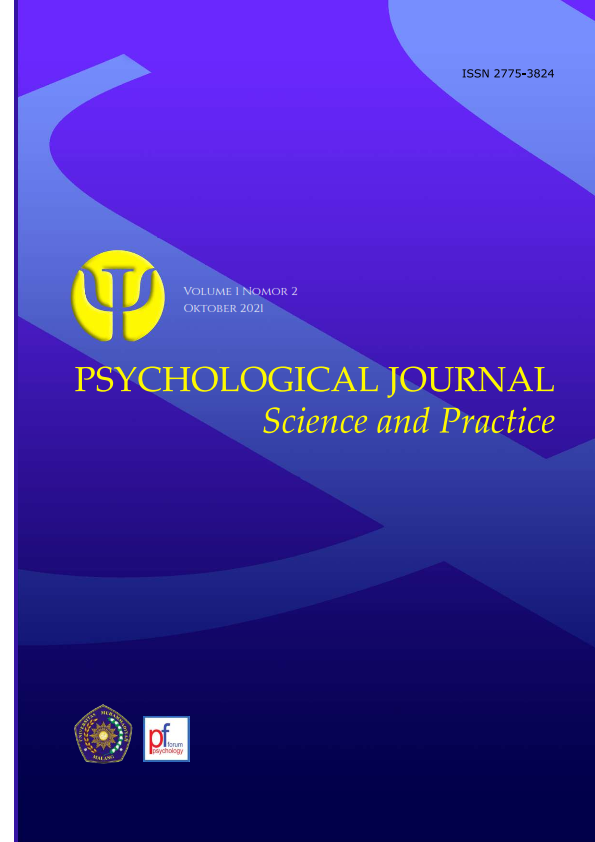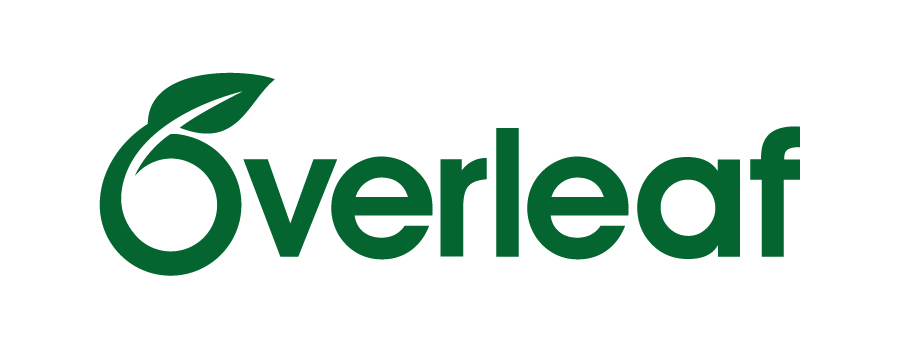Burnout akademik selama pandemi Covid-19
DOI:
https://doi.org/10.22219/pjsp.v1i2.19021Keywords:
academic burnout, mood swing, online learning, phenomenologyAbstract
The purpose of this study was to determine the experience of the students during online learning. The subjects
consisted of 10 students who were running online learning with an age range of 18-25 years. The method used is a
semi-structured interview with a qualitative phenomenological approach. The results show that the subject quickly
feels emotional changes (mood swings) during online learning. Sometimes the subjects become more sensitive to
their families at home, when they are tired they express negative emotions by crying, and get angry when there are
no ideas when doing the assignments. Some of these things cause individuals to feel pressured with the college
assignments, so they experience academic burnout.
Downloads
References
Adnan M. & Anwar, K. (2020). Online learning amid the COVID19 pandemic: Students perspective. Journal of Pedagogical
Sociology and Psychology, 2(1), 45-51.https://doi.org/10.33902/JPSP.%202020261309
Aguilera-hermida, A. P. (2020). College students use and acceptance of emergency online learning due to COVID19.
International Journal of Educational Research Open, 1.https://doi.org/10.1016/j.ijedro.2020.100011
American Psychological Association.(2020). Stress in America™ 2020 a national mental health crisis. Article, USA.www.apa.
org/news/press/releases/stress/2020/report-october
Arden, M. A. & Chilcot, J. (2020). Health psychology and the coronavirus (COVID-19) global pandemic: A call for research.
British Journal of Health Psychology, 25, 231–232.
Basilaia, G., & Kvavadze, D. (2020). Transition to online education in schools during a SARS-CoV-2 coronavirus (Covid-19)
pandemic in Georgia. Pedagogical Research, 5(4), 1-9.https://doi.org/10.29333/pr/7937
Cheung, K., Yuen, K., Hilda, M., Weiwei, L., & Wai, S. (2020).Depression, anxiety and stress in different subgroups of firstyear university students from 4-year cohort data. Journal of Affective Disorders, 274, 305–314.https://doi.org/10.1016/j.
jad.2020.05.041
Creswell, W. John. (2018). Research design: Qualitative, quantitative and mixed methods approaches (3rd ed).
SAGEPublications. Inc.
Cucinotta, D., & Vanelli, M. (2020). WHO declares COVID-19 a Pandemic. Acta Bio-Medica: Atenei Parmensis, 91(1), 157160.https://doi.org/10.23750/abm.v91i1.9397
Dewaele, J., Magdalena, A. F., & Saito, K. (2019). The effect of perception of teacher characteristics on Spanish EFL learners’
anxiety and enjoyment. The Modern Language Journal, 0(0), 1–16.https://doi.org/10.1111/modl.12555
Hess, Abigail. (2020, November 6th). Staying engaged in class is the biggest coronavirus-related concern for college students, report finds.https://www.cnbc.com/2020/11/06/81percent-ofcollege-students-feel-coronavirus-anxiety-new-report.html
Holmes, E. A., O’Connor, R. C., Perry, V. H., Tracey, I., Wessely, S., Arseneault, L., Ballard, C., Christensen, H., Cohen Silver,
R., Everall, I., Ford, T., John, A., Kabir, T., King, K., Madan, I., Michie, S., Przybylski, A. K., Shafran, R., Sweeney, A.,
. . . Bullmore, E. (2020). Multidisciplinary research priorities for the COVID-19 pandemic: A call for action for mental
health science. The Lancet Psychiatry, 7(6), 547–560.https://doi.org/10.1016/S2215-0366(20)30168-1
Hidayat, Reja. (2020, September 10th). Stres, burnout, jenuh: Problem siswa belajar daring selama Covid19.https://tirto.id/stres-burnout-jenuh-problem-siswabelajar-daring-selama-covid-19-f3ZZ
Kapasia, N., Paul, P., Roy, A., Saha, J., Zaveri, A., Mallick, R., Barman, B., Das, P., & Chouhan, P. (2020). Impact
of lockdown on learning status of undergraduate and postgraduate students during COVID-19 pandemic in West
Bengal, India. Children and Youth Services Review, 116, 1–5. https://doi.org/10.1016/j.childyouth.2020.105194
Kerr, Emma. (2020, October 26th). Stress in college student: What to know.https://www.usnews.com/education/best-colleges/articles/stress-in-college-students-what-to-know
Kuswarno, E. (2009). Metodelogi penelitian fenomenologi: Konsepsi, pedoman dan contoh penelitian. Widia Padjajaran.
Maslach, C., Schaufeli, W. B., & Leiter, M. P. (2001). Job burnout. Annual Reviews of Psychology, 52, 397-422.https://doi.org/
1146/annurev.psych.52.1.397
Maslach, C. (2015). International encyclopedia of the social & behavioral sciences (2nd Edition; J. D. Wright, Ed.). Elsevier
Ltd.
Mishra, D. L., Gupta, D. T., & Shree, D. A.(2020). Online teaching-learning in higher education during lockdown
period of COVID-19 pandemic. International Journal of Educational Research Open, 1.https://doi.org/10.1016/j.
ijedro.2020.100012
Neubauer, B. E., Witkop, C. T. & Varpio, L. (2019). How phenomenology can help us learn from the experiences of
others. Perspect Med Educ, 8, 90–97.https://doi.org/10.1007/s40037-019-0509-2
Pace, C., Pettit, S. K., & Barker, K. S. (2020). Best practices in middle level quaranteaching: Strategies, tips and resources
amidst COVID-19. Becoming: Journal of the Georgia Association for Middle Level Education, 31(1), 1-13.https:
//doi.org/10.20429/becoming.2020.310102
Paredes, M. R., Apaolaza, O., Fernandez-Robin, C., Hartmann, P., & Yanez-Martinez, D. (2020). The impact of the COVID19
pandemic on subjective mental well-being: The interplay of perceived threat, future anxiety and resilience. Elsevier
Public Health Emergency Collection, 170, 1-6.https://doi.org/10.1016/j.paid.2020.110455
Pines, A., Aronson, E., & Elliot. (1989). Career burnout: Causes and cures. Free Press.
Savitsky, B., Findling, Y., Ereli, A., & Hendel, T. (2020). Nurse Education in Practice Anxiety and coping strategies among
nursing students during the covid-19 pandemic. Nurse Education in Practice, 46, 102809.https://doi.org/10.1016/j.
nepr.2020.102809
Sugiyono. (2017). Metode penelitian kuantitatif, kualitatif, dan R&D. Alfabeta.
Wains, S. I., & Mahmood, W. (2008). Integrating m-learning with e-learning. Proceedings of the 9th ACM SIGITE Conference
on Information Technology Education, 31-38.https://doi.org/10.1145/1414558.1414568

Downloads
Published
How to Cite
Issue
Section
License
Copyright (c) 2022 Devrita Irenike Mayade Chori

This work is licensed under a Creative Commons Attribution-ShareAlike 4.0 International License.
Authors who publish with Psychological Journal: Science and Practice (PJSP) agree to the following terms:
- For all articles published in Psychological Journal: Science and Practice (PJSP), copyright is retained by the authors. Authors give permission to the publisher to announce the work with conditions. When the manuscript is accepted for publication, the authors agree to automatic transfer of the publishing right to the publisher.
- Authors retain copyright and grant the journal right of first publication with the work simultaneously licensed under a Creative Commons Attribution-ShareAlike 4.0 International License that allows others to share the work with an acknowledgment of the work's authorship and initial publication in this journal.
- Authors are able to enter into separate, additional contractual arrangements for the non-exclusive distribution of the journal's published version of the work (e.g., post it to an institutional repository or publish it in a book), with an acknowledgment of its initial publication in this journal.
- Authors are permitted and encouraged to post their work online (e.g., in institutional repositories or on their website) prior to and during the submission process, as it can lead to productive exchanges, as well as earlier and greater citation of published wor (See The Effect of Open Access).
This work is licensed under a Creative Commons Attribution-ShareAlike 4.0 International License.







